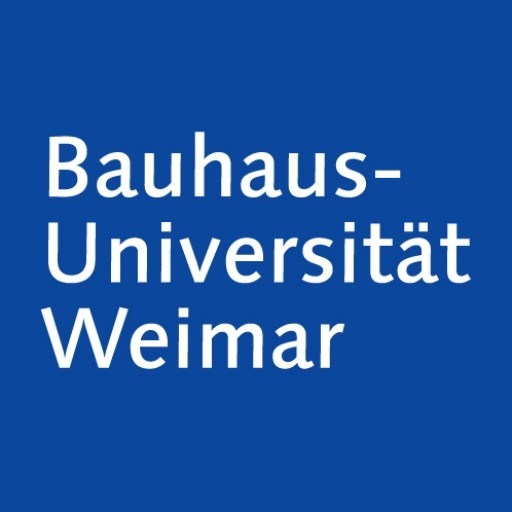Photos of university / #uni_hamburg
At the beginning of the Master's programme, three basic modules devoted to the legal, economic and political aspects of European integration must be attended by all students collectively. During the subsequent specialisation phase, students have the opportunity to study one of the following elective specialisation fields (ESF) in depth:
A) The EU as a Political Actor
B) External Relations of the EU
C) Companies as Economic Actors
D) Law of the EU
The range of specialisation fields may vary from academic year to year, depending on the interests of the applicants.
In ESF A, "The EU as a Political Actor", the EU is analysed from the perspective of political organisation, focusing on institutions, decision-making processes, policies, foundations of legitimacy, conditions of effectiveness, etc. This specialisation field is mainly targeted at future civil servants in the national or international public sector, association representatives, political analysts or lobbyists who require in-depth knowledge of the political system of the EU.
The increasing relevance of the economic and political external relations of the EU, including their implications for security and defence matters, led to the inception of ESF B, "External Relations of the EU". In order to gain comprehensive and in-depth understanding of the process of European integration, it is necessary to also consider the EU within the framework of global competition, global challenges and responsibilities of the international community. The concept of ensuring the identity of Europe on the global level also feeds into these considerations. The EU, its Member States and private economic actors are embedded in an ever-growing imbroglio of international and transnational arrangements and regulations offering various new lines of work for suitably qualified academics. This specialisation field is targeted at future international trade experts, civil servants working in international organisations, economic diplomats, or those interested in seeking employment in European or global security institutions.
ESF C, "Companies as Economic Actors", focuses on the analysis of the EU and its internal and global interactions from the viewpoint of companies as the centre of economic activities. The conduct of companies on the European and global level plays a pivotal role in the pursuit of the economic, political and other objectives of the Union, the Internal Market here being the most obvious accomplishment. This specialisation field offers a thorough discussion of company law, competition law and policy, and issues of business organisation. Students will also gain an understanding of labour relations, the protection of intellectual property, and concepts of taxation of business-related activities. Future corporate and in-house lawyers, corporate consultants or civil servants in competition or regulation agencies are the main addressees of this field of specialisation.
The undiminished significance of EU law as a means, form, and instrument of economic, political and social integration calls for the implementation of ESF D, "Law of the EU". It is irrefutable that there is a high demand for in-depth instruction on the legal foundations of the European Union as a new design for political and economic organisation and other central areas of Union law. The process of integration utilises means of law and requires legal expertise even when dealing with eminently political matters. Owing to these considerations, this specialisation field focuses on the constitutional and international foundations of EU law, the cornerstones of internal market law and human rights protection as well as legal aspects of the economic and political external relations of the EU. It is targeted at lawyers working in the government sector (agencies, ministries, institutions of the EU) or the private sector (companies, law firms, corporate consultants) who aspire to deal with issues of Union law or public international law.
Educational organisation
The Master's programme is subdivided into nine modules in total. There are seven modules composed of academic lectures, five of which have to be attended during the winter semester, whereas a further two lecture modules follow during the summer semester.
After the lectures of the winter semester come to an end, an academic Master's thesis is to be written for which a period of four months is provided.
A practice module scheduled for the period between the winter and the summer semester (February/March) calls for the students to do an internship, e.g. at an institution of the EU, representations of the German Foreign Office in foreign countries, ministries, governmental agencies, law firms or companies.
At the beginning of the Master's programme, three basic modules are devoted to the legal, economic and political foundations of the European Union, the so-called Basic Section. The remaining two modules of the winter semester already form part of the elective specialisation field chosen individually by the student beforehand. During the summer semester, two additional modules in the specialisation field complete the Master's programme.
Common modules for all students alike: Basic Section, Practice Module and Master's thesis
Basic Section
Module G 1 "The EU as a Legal Community"
Module G 2 "The EU as an Economic Community"
Module G 3 "The EU as a Political Community"
Elective Specialisation Field A "The EU as a Political Actor"
Module S 1 "European Constitutional Law and Politics"
Module S 2 "The EU in the Process of Globalisation and Global Competition"
Module S 3 "European Governance"
Module S 4 "External Economic Relations and Enlargement Policy of the EU"
Elective Specialisation Field B "External Relations of the EU"
Module S 2 "The EU in the Process of Globalisation and Global Competition"
Module S 5 "Public International Law, International Organisations and the Political External Relations of the EU"
Module S 6 "External Economic Relations, Development and Enlargement Policy of the EU"
Module S 7 "The EU in the World Trade Order (GATT/WTO)"
Elective Specialisation Field C "Companies as Economic Actors"
Module S 8 "Legal and Economic Aspects of Competition Law and Policy and the Protection of Intellectual Property"
Module S 9 "Legal and Economic Aspects of Business Organisation"
Module S 10 "Legal and Economic Aspects of Cross-Border Capital Markets and Business Activities"
Module S 11 "European and International Company Law & Legal and Economic Aspects of Labour Relations"
Elective Specialisation Field D "Law of the EU"
Module S 1 "European Constitutional Law and Politics"
Module S 11 "European and International Company Law & Legal and Economic Aspects of Labour Relations"
Module S 12 "Legal and Economic Aspects of Competition Law and Policy"
Module S 13 "External Relations Law of the EU"
Practice Module
Master's thesis
Apart from participation in the courses which form part of the curriculum of the Master's programme, students have the opportunity to attend or participate in various symposia, workshops and guest lecturers organised by the Institute for European Integration of the Europa Kolleg Hamburg Foundation on a regular basis.
In the winter semester, a visit to the European Central Bank in Frankfurt am Main constitutes part of the programme, whereas during the summer semester a week-long excursion to the institutions of the EU in Luxembourg (Court of Justice of the European Union) and Brussels (Commission, Council and European Parliament) as well as to institutions located in Strasbourg (Council of Europe, European Court of Human Rights) is organised.
Study abroad unit(s)
Due to the short duration of the programme (12 months), studies abroad are not integrated into the course. Students are nevertheless encouraged to spend their practice module abroad.
Internships
A practice module scheduled for the period between the winter and the summer semester (February/March) calls for students to do an internship, e.g. at an institution of the EU, representations of the German Foreign Office in foreign countries, ministries, governmental agencies, law firms or companies.
Forms of assessment
Each module is completed with an examination, the form of which may vary (oral exam, exam written in class, take-home exam, written paper analysing a topic or a case, presentation, etc.). For each successful exam a certain number of credit points (CP) according to the European Credit Transfer and Accumulation System (ECTS) will be awarded.
A total of 60 CP can be earned; the credit points are allocated to the different elements of the Master's programme as follows:
- basic modules: 15 CP
- modules of the elective specialisation field: 25 CP
- internship: 5 CP
- Master's thesis: 15 CP
The successful passing of an examination requires the minimum grade "sufficient" (4.0); the same applies to the Master's thesis.
Course objectives
The objective of the Master's programme is to educate, on a high academic level, a small group of highly qualified graduates, in particular, those with a first degree in law, economics or political science, by exposing students to an interdisciplinary approach to European integration. Students from various backgrounds will be equipped with the knowledge and skills necessary for a high-level professional career in international organisations, ministries, companies, law firms, and for other professional activities.
In the case of successful completion of all relevant modules and a Master's thesis marked at least with a grade of "sufficient" (4.0), Universität Hamburg awards the degree of "Master of Arts (MA)".
The degree "Master of Laws (LLM)" can only be obtained by students who hold a law degree before taking up their studies at the Europa Kolleg Hamburg Foundation. Furthermore, awarding of the degree "Master of Laws (LLM)" calls for predominantly legal studies.
In the elective specialisation fields C "Companies as Economic Actors" and D "Law of the EU", this condition is met if the Master's thesis is written in law, whereas in the elective specialisation fields A "The EU as a Political Actor" and B "External Relations of the EU", it is also necessary that the internship be juristic in nature.
Language requirements
Applicants who have not received their diploma entitling them to be admitted to an institution of higher education (e.g. school leaving certificate or university entrance qualification) from an English-speaking institution must provide proof of their English language proficiency by submitting one of the following tests (the test should not date back more than three years):
- TOEFL with a minimum result of 79 (iBT), 213 (CBT) or 550 (PBT)
- IELTS with a minimum result of 6.5
- The Cambridge Proficiency in English (CPE) with a grade of "C" as a minimum in all parts
- The Cambridge in Advanced English (CAE) with a grade of "C" as a minimum in all parts
Academic requirements
The requirements for admission to the Master's programme are:
- A degree from a German or foreign institution of higher education (university level) with a grade above average, preferably in law, in economics, or in political science representing 240 credit points (CP) according to the European Credit Transfer and Accumulation System (ECTS). Applicants who have been awarded their first degree qualifying for a professional career with a total of 180 CP have to make up for the missing 60 CP by a good performance in additional educational or practical training programmes relating to the fields covered in the Master's programme. Proof of this may be submitted in the form of professional experience, further studies, research activities, publications or the like.
- Very good English language proficiency
Want to improve your English level for admission?
Prepare for the program requirements with English Online by the British Council.
- ✔️ Flexible study schedule
- ✔️ Experienced teachers
- ✔️ Certificate upon completion
📘 Recommended for students with an IELTS level of 6.0 or below.
Enrolment fees
There is a semester fee of 310 EUR per semester. This fee includes a semester ticket covering public transport in the Hamburg metropolitan area.
Costs of living
We recommend that single students budget at least 800 EUR per month to meet personal expenses (accommodation, living, health insurance, books).
Job opportunities
Students who enrol in a full-time programme will generally have only limited time for part-time jobs.
As a rule, students who hold an international student visa may work for up to 120 full days or 240 half days per year. Further information on work regulations for international students at Universität Hamburg can be found here: http://www.uni-hamburg.de/piasta/beratung_e.html
Funding opportunities within the university
International full-time students may apply for merit scholarships or exam grants of Universität Hamburg. For more information, please use the provided link. We also recommend contacting our colleagues in the Department of International Affairs for further guidance.
http://www.uni-hamburg.de/internationales/studieren-an-der-uhh/finanzierung-des-studiums_e.html
Arrival support
Students and researchers can find information on how to get started in Hamburg on the website of the PIASTA programme at the Universität Hamburg Department of International Affairs (http://www.uni-hamburg.de/piasta_e.html) and on the website of the Hamburg Welcome Center (http://english.welcome.hamburg.de).
During the International Welcome Week organised by PIASTA, you will be able to get in touch with all the important institutions and contacts which are particularly useful for international students: http://www.uni-hamburg.de/piasta/veranstaltungen/international-welcome-week_e.html
Services and support for international students
The Universität Hamburg CampusCenter is the first port of call for all current and prospective students and offers information, services, and counselling. The PIASTA programme at the Universität Hamburg Department of International Affairs offers support and advice for German and international students, as well as cultural events and workshops.
For more information, refer to: http://www.uni-hamburg.de/piasta and https://www.uni-hamburg.de/en/campuscenter.html
The welcome service of the Universität Hamburg Department of International Affairs is the first contact address for international visiting researchers and others: http://www.uni-hamburg.de/internationales/wissenschaft/service-international_e.html
Accommodation
Accommodation is available through the "Studierendenwerk" (students' services) or on the private market. The "Studierendenwerk" provides rooms in halls of residence, most of which are single rooms with shared kitchens and showers/WCs. We strongly advise students and researchers to arrange accommodation prior to arriving in Hamburg, as demand for affordable accommodation is sometimes larger than supply.
For more information on how to find accommodation and how to plan your first steps in Hamburg, please refer to: https://www.uni-hamburg.de/piasta/beratung/doc/willkommen.pdf










